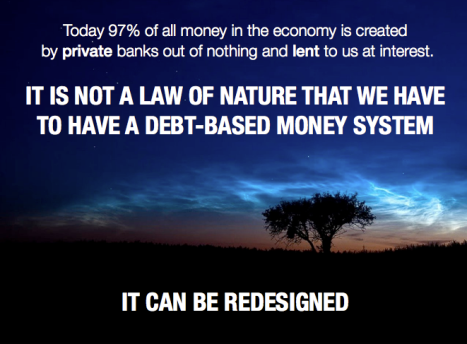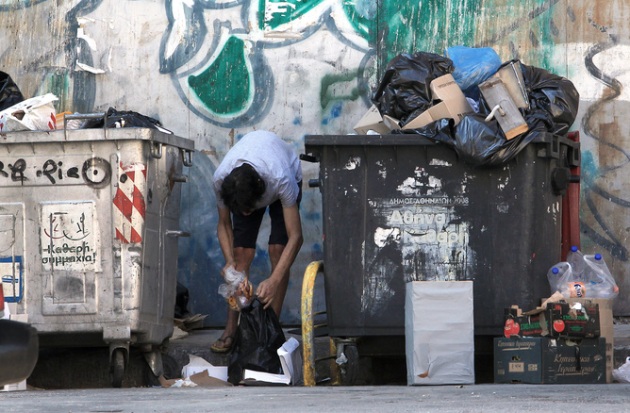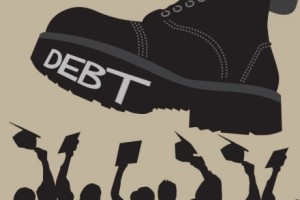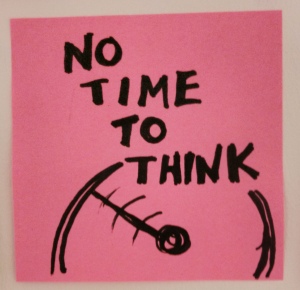We all to some extent or another try to build a life for ourselves in this world. We have our goals, our dreams, our visions, our hopes, our desires, and we attempt to build our lives accordingly. Some are able to realize parts of their dreams, others are not able to realize any of them, not because they did not have what it takes, but because this world system in its current set-up is extremely destructive, and can easily tear down a persons life and future. It is thus interesting to see how many of us that try to hide in our small lives. We hide in our homes, with our families, with those that are close to us, we go to work, earn enough to survive, hold unto our dreams and hope that it will not be our life that is shattered.
However, a point that we forget is that, until we have once and for all directed this world system and created a new, updated, and benevolent system, we will not be able to create our dreams, hopes, desires, and that small place in this world where we can be left alone and tend to our own interests and hobbies. Because there is no way to separate ourselves from what is here. Even if we build our house far, far away from civilization, there is still a risk that the instability of the world system will have consequential effects on our lifestyle. This is the reality, we will not be able to have a great life, until the world system as a whole have changed.
Thus, the dream and motivation of building a life for ourselves in this world, must also include taking responsibility for the world system, in taking on a point within the world system that must be directed, and walking that point into change. Because unless we do it, how can we expect anyone else to? And unless we get up and start directing our lives, not only in the personal, but also the interpersonal, and the universal, any form of peace and stability we experience in our lives will be ephemeral – because the world system will eventually catch up with us and give the reminder that things in this world are NOT what they should be.
Creating our lives must as such include taking responsibility for and pushing for a change within the world system. And the interesting point is this; it does NOT have to be a grand and impressive change that we personally take on to move into this world; such as for example, stopping starvation. Even the small and incremental contributions moves the world into the right direction and is as such needed. Hence, what determines what we make our area of focus and expertise, our purpose when it comes to the world system, is ourselves: Through asking where do we have our strengths and weaknesses? What are we able to do with what we have? Where are we able to contribute that will make a impact and change things for the better? That is the question we must ask ourselves: Where Can We Put Ourselves To The Best Use?
One animal that we can learn from when it comes to forgetting about our individuality, and instead looking at the greater picture, to see where we fit in the best, where our particular constitution and personal make up can be most effective, is the honey bee. Because the bee lives solely for the community, for its hive. A bee is born into one out of three specific physical types; it is either a queen bee, a drone bee, or a worker bee. Each of these types have their own distinct role in the bee community – and neither of these roles supersedes the others in terms of having a leader position. In-fact, if the queen bee is not effective at laying eggs, which is her primary task, she will be replaced by the worker bees. Then the drone bees, their one task is to mate with a queen bee, and when that is done, the drone bee will die, because it is of no use to the bee community anymore. For the bees the individual does not exist, the primary consideration is the group, the hive, the togetherness, because as a group bees are strong, while as individuals they are weak.
Us humans need to become more like bees when it comes to looking at our lives, our decisions, where we decide to go, and how we decide to live, and when it comes to contributing and giving ourselves a purpose in relation to the world system. In order for us to contribute the best we can, we must let go of our individuality, our desires, our wants, our feelings of what we WANT to do, and instead look at where we are the BEST; what skills do we have? What supportive characteristics have we nurtured and created within ourselves? All of that should be taken into account when we create our lives, our future, our mission and purpose in this life, as that will make us much more effective, and subsequently, the human race as a whole will benefit.
Let us not dwell on the problems of this world, but instead embrace the busy bee in ourselves, look at where we can contribute and give, and get to action, because that is the way we, one by one, individually and together, incrementally and one piece at a time, move this world towards a better future.
_________________
Check out the following:
Living Income Guaranteed Proposal http://livingincome.me/wiki/The_Living_Income_Guaranteed_Proposal
Living Income Guaranteed by Equal Life Foundation: http://livingincome.me/
WordPress: http://livingincomeguaranteed.wordpress.com/
Facebook https://www.facebook.com/BasicIncomeGuaranteedByEqualLifeFoundation
YouTube: https://www.youtube.com/user/LivingIncome
Google+ https://plus.google.com/u/3/b/106743715342474012987/106743715342474012987/posts
Twitter http://twitter.com/livingincome
Equal Life Foundation: http://equallife.org
Equal Life Foundation – Bill of Rights: https://equallifefoundation.wordpress.com/bill-of-rights/
Presenting the Fundamental Human Rights by Equal Life Foundation https://www.youtube.com/watch?v=eT8Sfq-pF3Y
WordPress: http://equallifefoundation.wordpress.com/
Twitter http://twitter.com/equallifefndn
Equal Life Foundation: https://www.facebook.com/EqualLifeFoundation
Economist’s Journey To Life http://economistjourneytolife.blogspot.com/
Discuss at: http://www.facebook.com/groups/capitalism.vs.equalmoney/
http://livingincomeguaranteed.files.wordpress.com/2014/04/lig-proposal-first-draft-2013.pdf EN
https://livingincomeguaranteed.files.wordpress.com/2015/02/lig-predlog-prvi-osnutekt-v1.pdf SL
http://livingincomeguaranteed.files.wordpress.com/2014/04/ivg-propuesta-primera-version.pdf ES
http://livingincomeguaranteed.files.wordpress.com/2014/04/lig-prijedlog-prvi-nacrt.pdf CR
http://livingincomeguaranteed.files.wordpress.com/2014/04/lig-voorstel-eerste-schets-v-2.pdf NL









